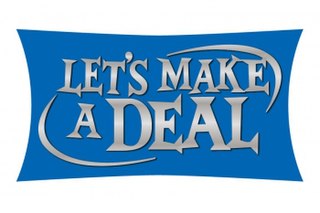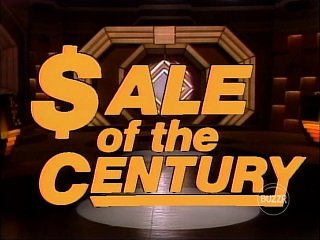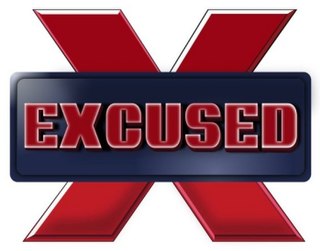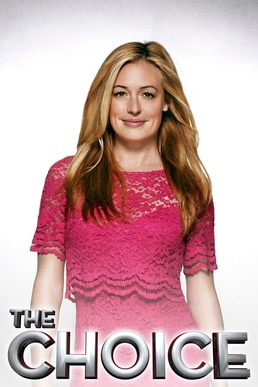Related Research Articles

Hollywood Squares is an American game show in which two contestants compete in a game of tic-tac-toe to win cash and prizes. The show piloted on NBC in 1965 and the regular series debuted in 1966 on the same network. The board for the game is a 3 × 3 vertical stack of open-faced cubes, each occupied by a celebrity seated at a desk and facing the contestants. The stars are asked questions by the host and the contestants judge the truth of their answers to gain squares in the right pattern to win the game.

Speed dating is a formalized matchmaking process which has the purpose of encouraging eligible singles to meet large numbers of new potential partners in a very short period of time.
Dating game shows are game shows that incorporates a variety of matchmaking systems and services in the form of a game with clear rules. Human matchmaking is involved only in selecting the game's contestants, who are usually selected more for the amusement value than any concern for their happiness or compatibility. The audience sees only the game; an important feature of all dating game shows is that the contestants have little or no previous knowledge of each other, and are exposed to each other only through the game, which may include viewing a photograph or at least knowing the basic criteria for participation.

Let's Make a Deal is a television game show that originated in the United States in 1963 and has since been produced in many countries throughout the world. The program was created and produced by Stefan Hatos and Monty Hall, the latter serving as its host for nearly 30 years.

The Newlywed Game is an American television game show that puts newly married couples against each other in a series of revealing question rounds to determine how well the spouses know or do not know each other. The program, originally created by Robert "Nick" Nicholson and E. Roger Muir and produced by Chuck Barris, has appeared in many different versions since its 1966 debut. The show became famous for some of the arguments that couples had over incorrect answers in the form of mistaken predictions, and it even led to some divorces.
The Shidduch is a system of matchmaking in which Jewish singles are introduced to one another in Orthodox Jewish communities for the purpose of marriage.

Sale of the Century is an American television game show that originally debuted on September 29, 1969, on NBC daytime. It was one of three NBC game shows to premiere on that date, the other two being the short-lived game shows Letters to Laugh-In and Name Droppers. The series aired until July 13, 1973, and a weekly syndicated series began that fall and ran for one season.

Singled Out is an American dating game show created by Burt Wheeler & Sharon Sussman which originally ran on MTV from 1995 to 1998. Each episode featured a group of 50 singles competing for a date with one main contestant.

High Rollers is an American television game show that involved contestants trying to win prizes by rolling dice. The format was based on the dice game shut the box.
Miai, or omiai (お見合い) as it is properly known in Japan with the honorific prefix o-, is a Japanese traditional custom which relates closely to Western matchmaking, in which a woman and a man are introduced to each other to consider the possibility of marriage. The term omiai is sometimes mistranslated as an "arranged marriage" but it can be described as a meeting opportunity with more serious considerations for the future as a process of courtship. According to the National Institute of Population and Social Security Research, in 2005 it was estimated that around 6.2% of marriages in Japan are arranged via omiai.
A blind date is a social engagement between two people who have not met, usually arranged by a mutual acquaintance.

The Price Is Right is an American game show produced by Mark Goodson-Bill Todman Productions, wherein contestants placed successive bids on merchandise prizes with the goal of bidding closest to each prize's actual retail price without surpassing it. The show was a precursor to the current and best-known version of the program, which premiered in 1972 on CBS's daytime schedule. It makes The Price Is Right one of only a few game show franchises to have aired in some form across all three of the Big Three television networks.
Double Up is an American game show that aired on NBC Saturday mornings from September 5 to October 17, 1992. J. D. Roth hosted as well as being one of its executive producers. A rap DJ named Disco served as announcer.
Dating is a term coined in America to signify the stage of romantic relationships in which two individuals engage in an activity together, most often with the intention of evaluating each other's suitability as a partner in a future intimate relationship. It falls into the category of courtship, consisting of social events carried out by the couple either alone or with others.
Confessions of a Matchmaker is an American reality television series broadcast by the A&E Network.

Patricia "Patti" Stanger is an American businesswoman and reality television personality. She is known for starring in and producing her own matchmaking reality series, The Millionaire Matchmaker, on Bravo TV. She is also founder and CEO of Millionaire's Club International, Inc. (www.MillionairesClub123.com), a professional matchmaking service for millionaires.

Excused is an American dating reality-based competition series that debuted in first-run syndication in the United States and Canada on September 12, 2011. The half-hour series is hosted by comedian Iliza Shlesinger and created by David Garfinkle and Jay Renfroe for Renegade 83 Productions and CBS Television Distribution.

The Choice is an American television dating game show that premiered on Fox on June 7, 2012, immediately following the premiere of Take Me Out.
The Big Date is an American dating show hosted by Mark L. Walberg, which aired on the USA Network from June 17, 1996 to September 19, 1997. Notably, the series featured a young Jon Hamm as a contestant on one episode. Susan Powter and Hank Steinberg also appeared as participants.

It Takes a Church is an American dating game show hosted by Natalie Grant and broadcast by Game Show Network. The show travels to multiple churches across the country looking for single members of congregations looking for a partner. The congregation of the church is primarily in charge of looking at potential daters and judging which one would be the best match. The first season, sponsored by Christian Mingle, began airing on June 5, 2014. The series was later renewed for a second season, which began airing March 26, 2015.
References
- ↑ "17 Forgotten Dating Shows". Mental Floss. 2016-04-14. Retrieved 2022-06-10.
- ↑ Puig, Claudia (25 April 1993). "Second only to God in influence among teen-agers in the '60s, when they attracted 1 of every 4 listeners in L.A., today deejays like Robert W. Morgan, Charlie Tuna and the Real Don Steele are spinning oldies, peddling nostalgia for days gone by : Back When Jocks Were Boss". Los Angeles Times. Retrieved 10 June 2022.